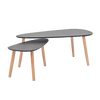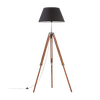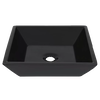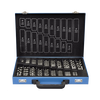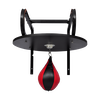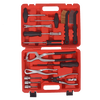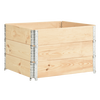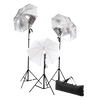Country information
Location
Australia, formally known as the Commonwealth of Australia, is a developed
country and the sixth largest in the world. It sits in Oceania, in between
the Indian and Pacific oceans. The capital city is Canberra, located in
the south east.
Population
According to Australia's Department of Climate Change, Energy, the
Environment and Water (DCCEEW), almost 90% of Australia's population lived
on the coast in 2019. This equates to over 22 million residents living
within 50km of the sea. The Australian Bureau of Statistics estimates a
national population of 26.2 million in December 2022. The World Bank
reports that Australia had the 55th largest population in the world in
2021 (behind Korea, Cameroon, and Venezuela, but ahead of Sri Lanka, the
Netherlands, and Romania).
Wealth
Australians have an average household income of AUD 2,349 per week as per
the Australian Institute of Health and Welfare (AIHW) in December 2020.
The Organisation for Economic Cooperation and Development (OECD) reports
that Australia has an above average employment rate of 73%, household
disposable income of USD 37,433 per annum, and household wealth of USD
528,768.
Dropshipping in Australia
The ecommerce market
90% of Australians buy online from domestic businesses (Statista, 2023).
The ecommerce market has been growing steadily and is expected to see a
compound growth rate of 10.5% between 2022 and 2026 (Global Data, 2022).
Australians spent a record AUD 353 billion on retail goods in 2022, 9.2%
more than in 2021 (CommBank iQ, 2022).
Online shopping has a 17.1% share of the Australian retail market and will
increase by an average of 6.6% to 22.1% by 2027 (eCommerceDB, 2022).
82% of Australian households made an online purchase in 2022 (Australia
Post, 2023).
By 2033, around 1 in 3 dollars will be spent online (Australia Post,
2023).
These statistics represent a big shift towards the ecommerce for
Australian consumers. Pursuing an online retail business in this region
could pay off, especially with the healthy ecommerce forecast for the
following years.
Product categories with high sales
Australians online annual spend for each category of consumer goods as per
Data Reportal, 2023:
Fashion (USD 9.8 billion)
Toys, hobby, DIY (USD 8.52 billion)
Electronics (USD 6.23 billion)
Personal and household care (USD 4.41 billion)
Food (USD 3.81 billion)
Furniture (USD 3.3 billion)
Beverages (USD 2.76 billion)
Physical media (USD 740.7 million)
Rising number of internet users
Data Reportal, 2023, found that Australia has an extremely high internet
usage rate of 96.2% compared to the global average of 64.4%. Oceania
accounts for just 0.7% of internet users worldwide, which is the smallest
portion compared to other continents. For example, South Africa has the
second smallest share (0.9%), North America has 6.7%, and East Asia has
the largest share (24%). However, it is still a large customer audience to
tap into.
It is predicted that by 2028, Australia will gain 1.4 million internet
users, based on data from Statista, 2023. By then, the total number of
users will be 24.19 million following a steady increase in previous years.
Use of smartphones
In 2019, Deloitte reported that 9 out of 10 Australians owned smartphones.
Data Reportal suggests that 92.2% of the Australian population will own a
smartphone in 2023. This compares with 67% that own a laptop or PC, 44%
that own a tablet, and 32% that own a smartwatch. It is worth noting that
51% of Australia's daily internet time takes place on a mobile device.
Logistics
Australia is well placed as China's neighbour. Most retail manufacturers
are based in East Asia, which is an advantage when shipping to Australian
customers. The logistics network in Australia is highly developed and
efficient. Australia Post is one of the leading logistics providers.
According to the 2023 Australia Post eCommerce Industry Report, Australia
Post invested AUD 427 million in new parcel facilities, fleet and
technology. They also opened eight new facilities nationally in 2022. This
brings Australia Post's total investment over the last three years to more
than AUD 1 billion.
Other major players in Australia's logistics industry:
Linfox
Brambles
Aurizon
AirRoad
Summary
As Australia becomes increasingly digital each year, ecommerce is a ripe
opportunity for a customer base ready to buy. Taking into account the high
internet penetration rate, high numbers of digitally-savvy shoppers, and
smart-tech owners, there aren't many disadvantages to starting a
dropshipping business down under.





